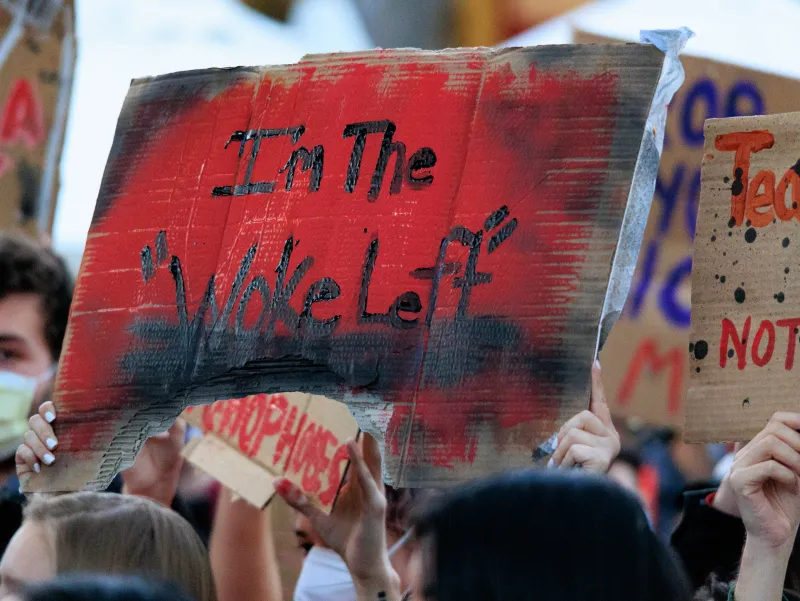“Practice the tolerance you preach,” “Give speech a chance,” and “Tolerance includes listening.” The Stanford College Republicans (SCR) taped posters bearing these phrases around Dinkelspiel Auditorium in anticipation of two very different visitors; former Vice President Mike Pence for his talk on “How to save America from the Woke Left,” as well as the supposed “Woke Left” anti-Pence organizers who came to protest his visit.
While anti-Pence protesters prepared a rally in anticipation of this event, there has been increasing discussion of the customary “freedom of speech” plea that comes along with inviting a controversial speaker to campus. The importance of freedom of speech has dominated campus conversation for the days preceding this event — and with the confrontation between different political groups in Dinkelspiel today, there is a lot to be said about how Stanford can protect students’ right to freely engage in political discourse.
Despite the emphasis on free speech, many students of color and students from marginalized backgrounds have limited freedom of speech amidst a polarized political climate and aggressive practices such as doxxing, harassment, and other hostile interactions. It is Stanford’s most vulnerable population that remains most at risk from these attacks — and with an open campus, it is unclear what kind of unwanted outside attention a Pence event could bring and how it could affect these marginalized students.
Take Ritwik Tati ’25, for example, a co-organizer of the anti-Pence protest. While protesting Pence’s presence on campus, Tati reflected on his own experience with being doxxed by opposing groups on campus. In Tati’s account, opposing groups spread dangerous and untrue claims about him online, complete with personal screenshots and links to his social media accounts. This represented a direct exposure that put Tati at risk of receiving hate online, simply because of his leftist beliefs.
Another student from the class of 2025, who asked to remain anonymous due to privacy and security concerns, claimed that standing outside Dinkelspiel during the Pence event “is not a safe space for students of color to protest. Some of us have midterms so that’s why we’re not here. The rest of us know how mentally taxing it can be.” The political climate surrounding the auditorium and fear of aggressive practices such as doxxing inhibited students’ ability to engage in what would have been otherwise healthy discourse.
The same anonymous student simply did not want to be quoted on what dorm they lived in, out of fear that it could put them in a position to receive hate from groups on or off campus. It was hard for me to see the “freedom of speech” outside Dinkelspiel when unhealthy political practices clearly created too hostile of an environment for a large population of students to engage with Pence’s visit to campus.
Within an hour of Pence giving his speech, tension stayed high around Dinkelspiel with patrolling security members, SCR organizers, anti-Pence protesters, and the everyday passersby strolling through White Plaza.
I saw one Stanford freshman — a hijabi — approached and interrogated on her affiliation with the anti-Pence organizers. She was a passerby who truly had no allegiance to any political group organizing that day. But her mere appearance put her in a position to be questioned and taunted in a naturally hostile way — the stakes were high and there were accusations of aggressive protesters, but she simply had nothing to do with it.
At the same time, there were many cases of people aggressively filming their surroundings inside and outside of Dinkelspiel, leaving little space for genuine conversation and political discourse around the auditorium. Some of this aggression can be expected with a controversial speaker like Pence coming to campus; however, hostile individual behaviors exacerbated the issue, ultimately discouraging more marginalized groups to speak freely on their opinions. “The first thing my parents’ told me was to proceed with caution,” the same anonymous student said.
While the SCR and anti-Pence protesters exercised their freedom of speech in and out of Dinkelspiel today, there is a larger conversation to be had about unheard student voices, and how we as a community can foster more productive debate among different groups on campus.
Students affiliated with the anti-Pence protesters alleged that the Pence event organizers voided tickets from people they believed might walk out. One student I spoke to, who asked to remain anonymous out of fear of being targeted, claimed that the process of voiding tickets could have involved the “racial-profiling” of names on the event roster, based on their observation that some students of color — who were not publicly affiliated with the anti-Pence protesters — were escorted out. These allegations are speculative, but regardless of whether or not these claims were true, the expulsion of student protestors represents an unwillingness to hear both sides of the issue.
Regardless of whether you stood inside or outside Dinkelspiel today, it is clear that there needs to be a greater emphasis on safe student disagreement and discourse without the personal attacks and risk that comes along with political affiliation. This could be achieved through more frequent political engagement between opposing groups on campus, a greater reassurance of security for Stanford students who would like to attend these types of events and the willingness of the Stanford administration to get involved in cases of political harassment and doxxing. The protection of free speech on our campus can only start with the protection and reassurance of our students’ ability to organize, protest and disagree with controversial speakers.
